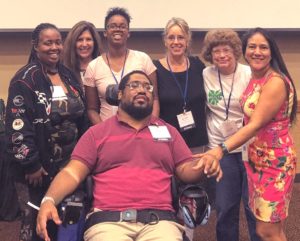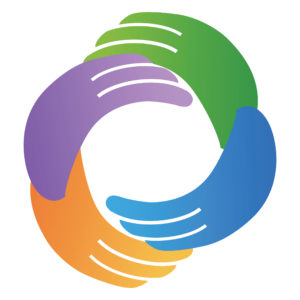“Individual liberty and interdependence are both essential for life in society.”
—Mahatma Gandhi

Photo from the Lucas County Board of Developmental Disabilities in Ohio.
As young people with disabilities grow into adulthood, they also grow into many new decision-making responsibilities such as money management, living arrangements, and health care. Growing up and taking charge of your own life is no small task. For many with disabilities, it’s downright challenging.
The reasons are as variable as people themselves are. Some disabilities affect mobility, others impact the ability to communicate clearly, or perform the activities of daily living, or plan what needs to be done, step by step. This is where supported decision-making (SDM) has much to offer. It “allows individuals with disabilities to make choices about their own lives with support from a team of people they choose.”
We hope the resources below are helpful in learning more about SDM and how it can be used to give people with disabilities a “voice and a choice” in how they live their lives.
Our best to you all,
The CPIR Team | Debra, Debi, Lisa, Jessica, and Myriam
___________________________
![]() Introduction to Supported Decision Making
Introduction to Supported Decision Making
Watch this 11-minute video for an overview of the role that supported decision making can play in the lives of people with disabilities, enabling them to maintain their autonomy and independence through a network of support from family, friends, and the community.
National Resource Center for Supported Decision-Making
Scads of resources to find here! Explore webinars, video series, articles, and people’s stories; find forms and SDM model agreements; and learn the SDM and guardianship statutes in your state.
CPR Supported Decision-Making
Here’s another website loaded with resources on SDM, starting with basic FAQs and expanding into applying SDM in the different domains of adulthood. There’s a very nice section devoted to individual stories.
 Supported Decision-Making: A User’s Guide for People with Disabilities and Their Supporters
Supported Decision-Making: A User’s Guide for People with Disabilities and Their Supporters
This 2019 guide from Disability Rights Maine delves deep into SDM, its benefits, how it can serve as an alternative to guardianship, and the processes and planning that are involved for both the person with a disability and his or her selected network of supporters. The guide is easy to read and provides worksheets for determining what types of supports a person needs in key life areas such as money management, health care, education, employment, relationships, and more.
Supported Health Care Decision-Making
(In English, Spanish, and Chinese) Need information on SDM with respect to health care? The Office of Developmental Primary Care in California offers videos, briefs, and training materials tailored specifically to different users, including self-advocates, parents and supporters, and professionals and policy makers.
___________________________
 This eNewsletter from the CPIR is copyright-free.
This eNewsletter from the CPIR is copyright-free.
We encourage you to share it with others.
Center for Parent Information and Resources
c/o SPAN, Inc.
35 Halsey St., Fourth Floor
Newark, NJ 07102
https://www.parentcenterhub.org
Subscribe to the Buzz from the Hub.
See past issues of the Buzz.
____________________________________________________________
Publication of this eNewsletter is made possible through Cooperative Agreement H328R130014 between OSEP and the Statewide Parent Advocacy Network (SPAN). The contents do not necessarily reflect the views or policies of the Department of Education, nor does mention of trade names, commercial products, or organizations imply endorsement by the U.S. Government or by the Center for Parent Information and Resources.

